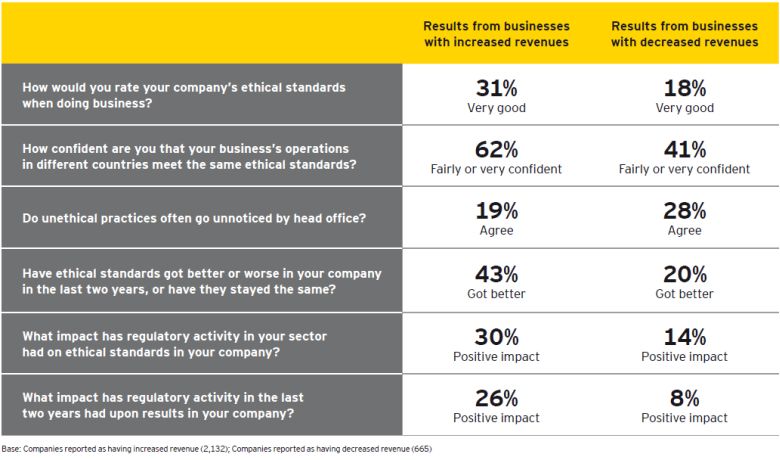Analytics, Corruption, EU – Baltic States, Financial Services, Markets and Companies
International Internet Magazine. Baltic States news & analytics
Tuesday, 16.04.2024, 18:05
EY: Estonians have no regard for business ethics
 Print version
Print version
"Over the past two years, only a quarter of the employees have heard the company's managers stress the importance of honest business principles. 48% of companies have implemented a hotline allowing to forward anonymous messages and faster discovery of a potential fraud or corruption case. A half of Estonian enterprises have not established a code of ethics or anti-corruption principles, which is a widespread risks preventative measure in several other European countries," said Ernst & Young Baltic AS partner Ivar Kiigemägi.
56% of respondents in Estonia have not participated in any fraud risks or corruption prevention training, which is considerably worse than the average of all countries (37%).
19% of respondents in the survey believe that unethical business activity is often unknown to senior management. Compared to the Scandinavian countries, in Sweden, Norway and Denmark, the figure is less than 10%.

The results of еру survey of 3,800 employees of large businesses across 38 countries shows that while fraud, bribery and corruption remain prevalent, strong compliance programs and ethical conduct can – and do – go hand in hand with revenue growth.
The results show a clear correlation between companies that have experienced revenue growth and those that are seen by respondents as having effective compliance programs. Respondents that report revenue growth in the past two years are:
- Almost twice as likely to rate their company’s ethical standards as ‘very good’.
- 50% more likely to be confident that operations in different countries meet the same ethical standards.
- Almost 20% more likely to say their company has an anti-bribery/anti-corruption (ABAC) code of conduct and more likely to say their company has clear penalties for breaching ABAC policies.
The auditing and consulting office EY study was carried out in Europe, the Middle East, India and Africa among 3,800 large companies' CEOs and employees from 38 countries, including 100 respondents from Estonia.








 «The Baltic Course» Is Sold and Stays in Business!
«The Baltic Course» Is Sold and Stays in Business!

